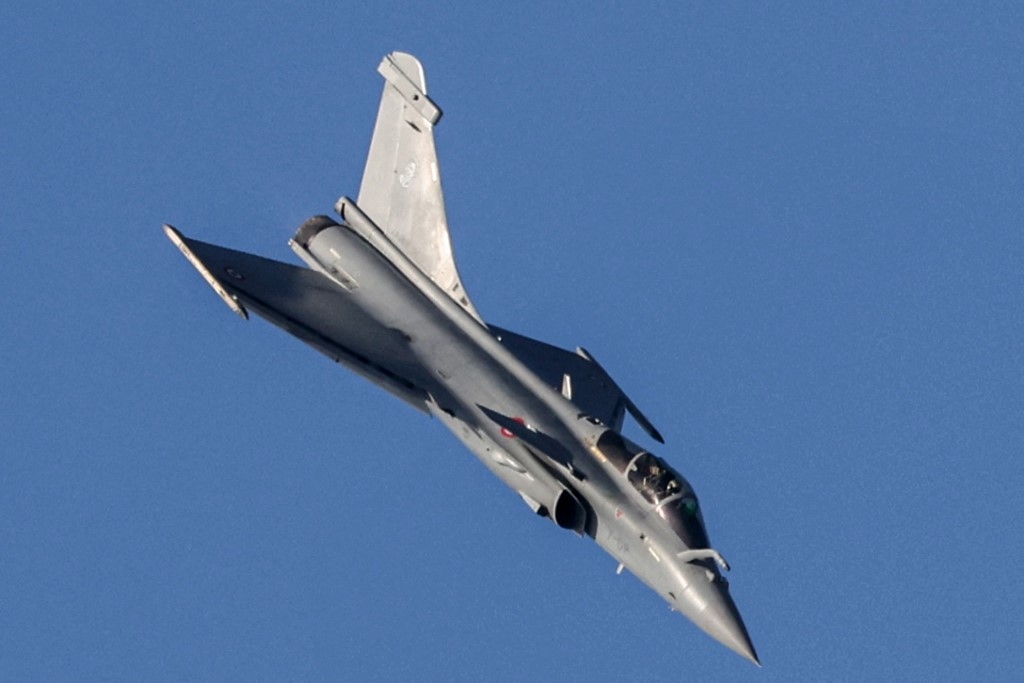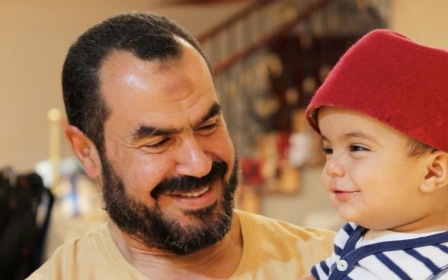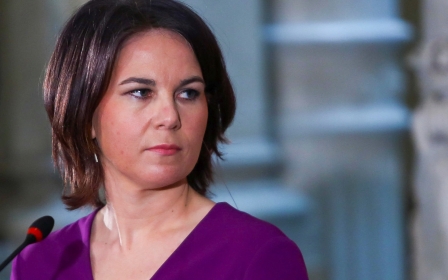Explained: EU arms sales to Sisi's Egypt

European Union countries have increased their arms sales to Egypt significantly since general-turned-president Abdel Fattah el-Sisi seized power following a military coup in 2013.
Between 2013 and 2020, EU countries (including the United Kingdom) exported or licensed at least $12.4bn worth of arms to Egypt, according to Campaign Against Arms Trade (CAAT).
Over the same period, EU countries - excluding the UK - exported at least $4.6bn worth of arms to Egypt, according to the Stockholm International Peace Research Institute (Sipri).
Top 10 arms importer
Egypt is now among the top 10 importers of arms worldwide, with a total of $22bn worth of arms bought between 2010 and 2020.
New MEE newsletter: Jerusalem Dispatch
Sign up to get the latest insights and analysis on Israel-Palestine, alongside Turkey Unpacked and other MEE newsletters
In the days following the state-sponsored mass killings of anti-coup protesters in Cairo's Rabaa and al-Nahda squares in August 2013, the EU Foreign Affairs Council announced that EU member states had agreed to suspend export licences for any weapons that may be used for repression.
The partial arms embargo was not legally binding, however, and many EU member states have subsequently continued to supply the Sisi government with arms.
Amnesty International has accused 12 EU countries of flouting the Foreign Affairs Council declaration by exporting arms used in extrajudicial killings, torture and other human rights abuses.
These included small arms, light weapons and ammunition, armoured vehicles, military helicopters, heavier weapons and surveillance technology.
The EU parliament in 2016 called for the suspension of security cooperation with Cairo, and condemned arms deals between Egypt and France, Germany and the UK.
The parliament called on EU member states to put an end to their “short-sighted and delusive approach to Egypt’s security forces as a guarantor of stability and a partner to fight violent extremism and terrorism in the region”.
French and German exports soar
According to Sipri, between 2013 and 2020 France was the top EU exporter of arms to Egypt and the second globally after Russia, surpassing the United States. The volume of arms exports from France has increased dramatically in comparison to the years preceding Sisi’s rule.
France also signed a €4bn ($4.5bn) deal in May 2021 for the sale of Rafale fighter jets to Egypt, to be delivered in 2024.
In December 2020, French President Emmanuel Macron declared he would not make arms sales to Egypt conditional on human rights, because he did not want to weaken Cairo's ability to combat militancy in the region.
German weapons sales to Egypt have also surged, by 205 percent between 2013-2017, according to analysis by the Tahrir Institute for Middle East Policy, while Italy is reportedly in talks with Egypt over a potential arms deal worth €10bn ($11.3bn).
In the past three years, Egypt has been the top recipient of German arms sales globally. In 2021 alone, total German arms sales to Egypt amounted to $4.8bn.
In February, nearly 200 frontline European politicians signed a letter calling on the United Nations Human Rights Council (UNHRC) to establish a monitoring and reporting mechanism on Egypt to address the country's "human rights crisis". The letter urged the UNHRC to take "resolute action" ahead of the council's upcoming session in March.
Middle East Eye delivers independent and unrivalled coverage and analysis of the Middle East, North Africa and beyond. To learn more about republishing this content and the associated fees, please fill out this form. More about MEE can be found here.




